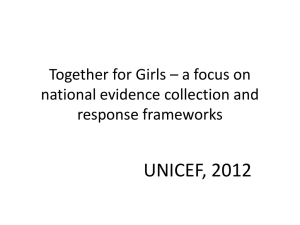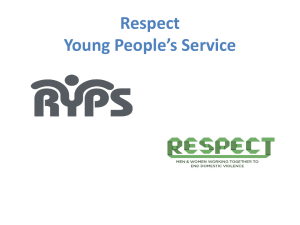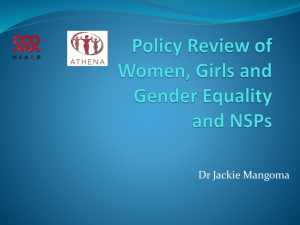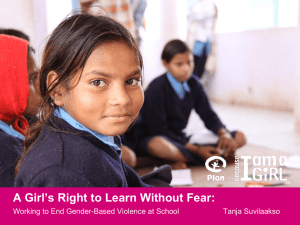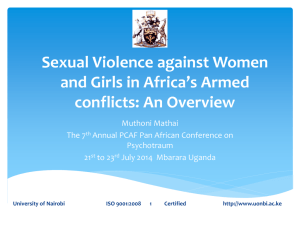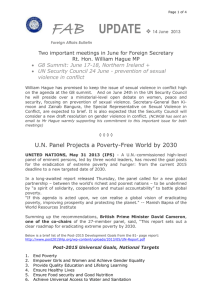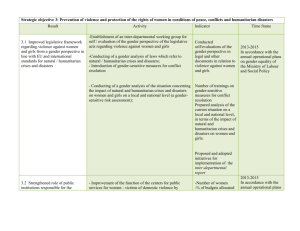other last minute proposals
advertisement
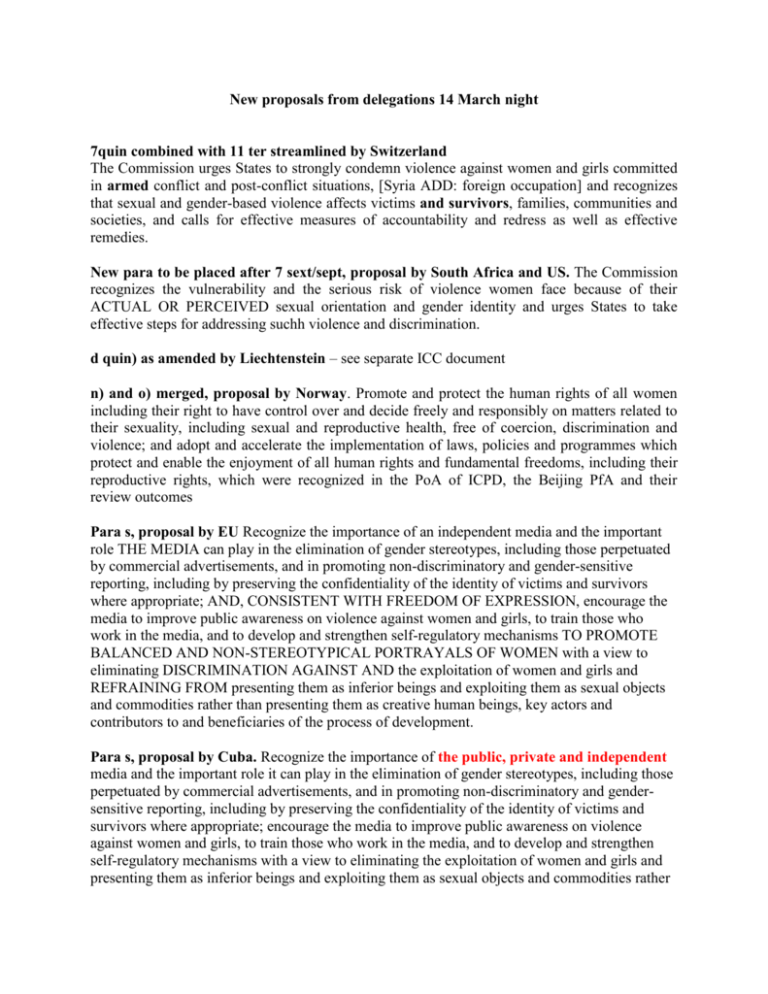
New proposals from delegations 14 March night 7quin combined with 11 ter streamlined by Switzerland The Commission urges States to strongly condemn violence against women and girls committed in armed conflict and post-conflict situations, [Syria ADD: foreign occupation] and recognizes that sexual and gender-based violence affects victims and survivors, families, communities and societies, and calls for effective measures of accountability and redress as well as effective remedies. New para to be placed after 7 sext/sept, proposal by South Africa and US. The Commission recognizes the vulnerability and the serious risk of violence women face because of their ACTUAL OR PERCEIVED sexual orientation and gender identity and urges States to take effective steps for addressing suchh violence and discrimination. d quin) as amended by Liechtenstein – see separate ICC document n) and o) merged, proposal by Norway. Promote and protect the human rights of all women including their right to have control over and decide freely and responsibly on matters related to their sexuality, including sexual and reproductive health, free of coercion, discrimination and violence; and adopt and accelerate the implementation of laws, policies and programmes which protect and enable the enjoyment of all human rights and fundamental freedoms, including their reproductive rights, which were recognized in the PoA of ICPD, the Beijing PfA and their review outcomes Para s, proposal by EU Recognize the importance of an independent media and the important role THE MEDIA can play in the elimination of gender stereotypes, including those perpetuated by commercial advertisements, and in promoting non-discriminatory and gender-sensitive reporting, including by preserving the confidentiality of the identity of victims and survivors where appropriate; AND, CONSISTENT WITH FREEDOM OF EXPRESSION, encourage the media to improve public awareness on violence against women and girls, to train those who work in the media, and to develop and strengthen self-regulatory mechanisms TO PROMOTE BALANCED AND NON-STEREOTYPICAL PORTRAYALS OF WOMEN with a view to eliminating DISCRIMINATION AGAINST AND the exploitation of women and girls and REFRAINING FROM presenting them as inferior beings and exploiting them as sexual objects and commodities rather than presenting them as creative human beings, key actors and contributors to and beneficiaries of the process of development. Para s, proposal by Cuba. Recognize the importance of the public, private and independent media and the important role it can play in the elimination of gender stereotypes, including those perpetuated by commercial advertisements, and in promoting non-discriminatory and gendersensitive reporting, including by preserving the confidentiality of the identity of victims and survivors where appropriate; encourage the media to improve public awareness on violence against women and girls, to train those who work in the media, and to develop and strengthen self-regulatory mechanisms with a view to eliminating the exploitation of women and girls and presenting them as inferior beings and exploiting them as sexual objects and commodities rather than presenting them as creative human beings, key actors and contributors to and beneficiaries of the process of development. w ter) Brazil amendments - Accelerate efforts to address the intersection of HIV and AIDS and violence against women and girls in their diversity, in particular the common risk factors, including through strategies to address [intimate partner and] domestic and sexual violence, and to strengthen coordination and integration of policies, programmes and services for HIV and those addressing violence against women and girls, and ensure that responses to HIV and AIDS are leveraged to prevent violence against them, while meeting their specific needs for sexual and reproductive health care, as well as HIV and AIDS diagnosis, affordable and accessible treatment and prevention, including through campaigns to promote the use of male and female condoms 14 (integrating 12), proposal by Iceland. The Commission emphasizes that ending violence against women and girls is imperative for the achievement of the internationally agreed development goals, including the Millennium Development Goals, and must be a priority for the eradication of poverty, the achievement of inclusive sustainable development, peace and security, human rights, health, gender equality and empowerment of women, sustainable and inclusive economic growth and social cohesion. The Commission strongly recommends that the realization of gender equality and empowerment of women be considered as a priority in the elaboration of the post-2015 development agenda.
